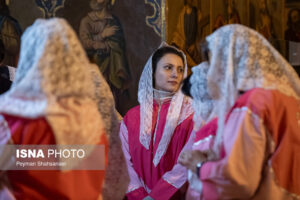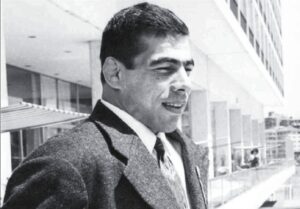Rumi was born to native Persian-speaking parents on the Eastern shores of the then Persian Empire on September 30, 1207, in the city of Balkh which is now part of Afghanistan, and finally settled in the town of Konya, in what is now Turkey.
Jalal ad-Din Muhammad Balkhi, universally celebrated as Rumi, is revered not only as a pinnacle of Persian literature but as a preeminent mystic and poet for the entire world.
The 8th of Mehr in the Iranian calendar marks an important cultural occasion for Iranians, honoring the renowned Iranian poet Rumi, whose stature in Persian poetry is universally recognized.
This pivotal relationship inspired Rumi’s vast and enduring body of work. His poetry, often categorized into masterpieces like the “Masnavi” and the “Divan-e Shams-e Tabriz,” explores complex themes of metaphysics, ethics, and divine love. Written in Persian, his verses articulate a universal language for the human soul, securing his title, Mowlana, meaning “our master.”
Rumi, also known as Mowlana, is widely regarded as one of the most significant poets in Persian (Farsi) literature and a prominent poet and mystic internationally. A pivotal moment in Rumi’s life occurred on November 30, 1244, when he met the itinerant dervish and holy man, Shams al-Dīn of Tabriz, in the streets of Konya.
It is possible that he had initially encountered Shams in Syria. Shams-e Tabrizi (1185–1248) became the spiritual guide for Mowlana and is deeply revered throughout Rumi’s poetic works, particularly in the ‘Diwan-e Shams-e Tabrizi’ (‘The Works of Shams of Tabriz’), which is written in Persian.
Mowlana’s poetry is often categorized into several distinct groups: the quatrains (rubaiyat) and odes (ghazals) found in the Divan, the six volumes of the Masnavi, his various discourses and letters, as well as the lesser-known Six Sermons.
Rumi’s most significant work is the “Masnavi,” also known as “Masnavi-ye Manavi” (Spiritual Couplets), which he composed in Persian (Farsi). He is particularly famous for this six-volume masterpiece, regarded by many scholars as one of the greatest achievements in Islamic mysticism.
Another well-known collection of his poetry in Persian is “Divan-e Shams-e Tabriz,” which consists of poems dedicated to Shams of Tabriz.
Rumi’s poetry is characterized by a deeply mystic quality that resonates with the universal language of the human soul.
The “Masnavi” is a comprehensive mystical treatise exploring complex issues in metaphysics, religion, ethics, and mysticism, while also proposing resolutions to these challenges.
His poetry is prominently displayed on the walls of many cities throughout Iran, set to music in Persian songs, and included in educational textbooks.
His words, born from a transformative friendship in 13th-century Konya, now offer wisdom and solace to people around the globe.
His influence pervades diverse artistic expressions, inspiring musicians and visual artists who seek to capture the ecstatic spirit of his verse. His teachings, emphasizing love, tolerance, and inner peace, have found fertile ground in interfaith dialogues and spiritual movements worldwide.
Rumi’s message transcends the limitations of language and culture, inviting all to embark on a journey of self-discovery and divine union.
The essence of Rumi’s teachings lies in the transformative power of love – a love that encompasses both the earthly and the divine.
He encourages his readers to shed their ego, embrace vulnerability, and open their hearts to the boundless ocean of divine grace.
His poetry is replete with metaphors and allegories that illuminate the path to spiritual enlightenment, guiding seekers through the labyrinth of the human condition.3
Moreover, Rumi’s legacy is not confined to the realm of poetry and spirituality. His life serves as a testament to the importance of human connection and the transformative potential of friendship.
The bond between Rumi and Shams-e Tabrizi exemplifies the power of mentorship and the profound impact that one individual can have on another’s spiritual journey.
Their relationship, though shrouded in mystery and legend, continues to inspire countless individuals to seek out meaningful connections and cultivate deep, authentic relationships.
In essence, Rumi’s enduring appeal lies in his ability to articulate the universal longings of the human heart. His poetry offers solace to the weary, guidance to the lost, and inspiration to those seeking a deeper connection with the divine.
As Mowlana, he remains a beacon of light, illuminating the path to spiritual awakening and reminding us of the transformative power of love, compassion, and inner peace.
His message echoes through the corridors of time, inviting all to embrace the beauty and mystery of existence and to embark on a journey of self-discovery that leads to the ultimate union with the divine.
He departed this life on December 17, 1273, in Konya. Centuries after his passing, Rumi’s voice continues to resonate with unwavering power, transcending national and doctrinal boundaries.
From the walls of Iranian cities to the pages of modern translations, the legacy of Mowlana endures not as a relic of the past, but as a living, breathing guide for the human spirit’s eternal quest for meaning and connection with the divine.







